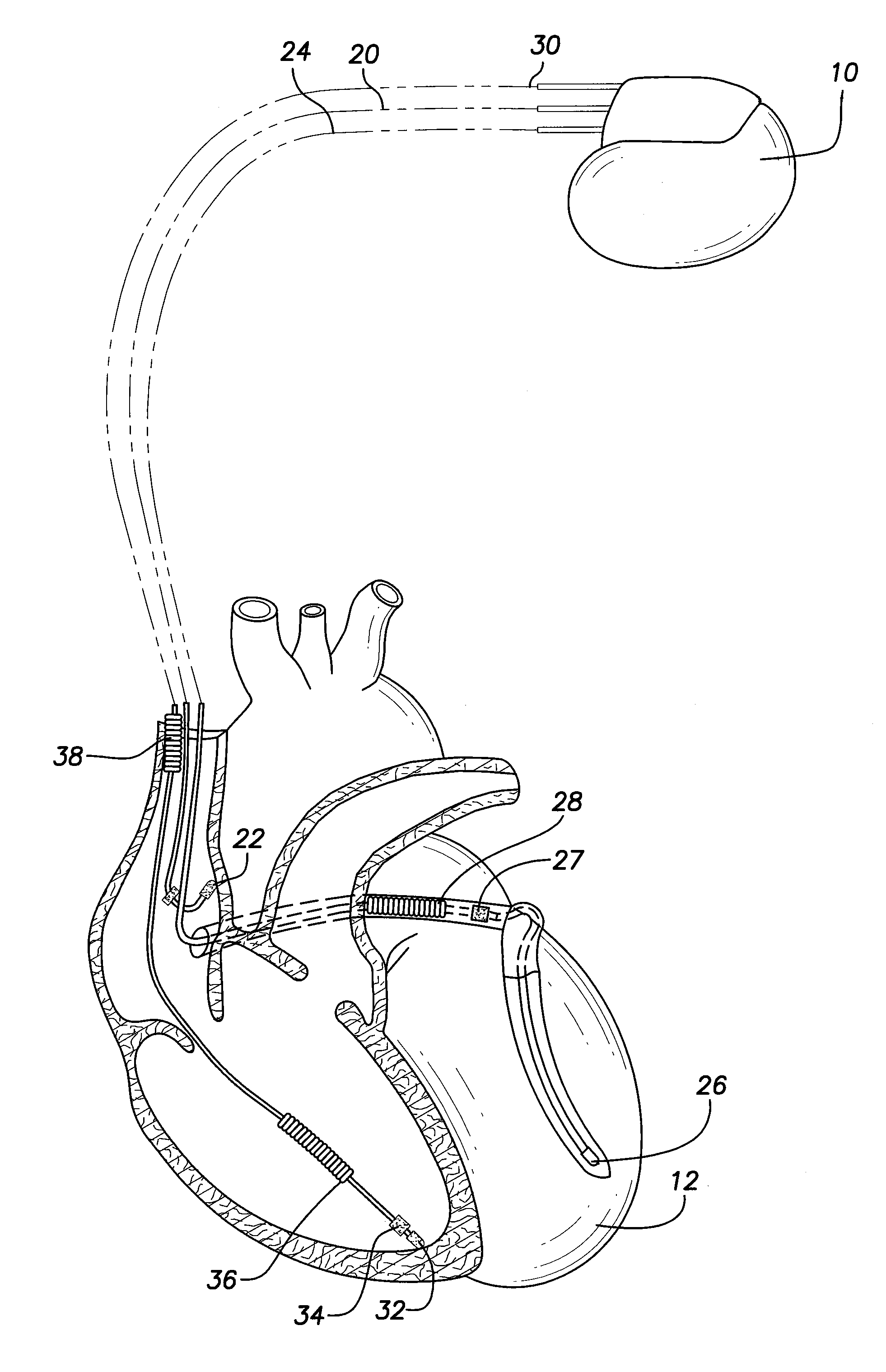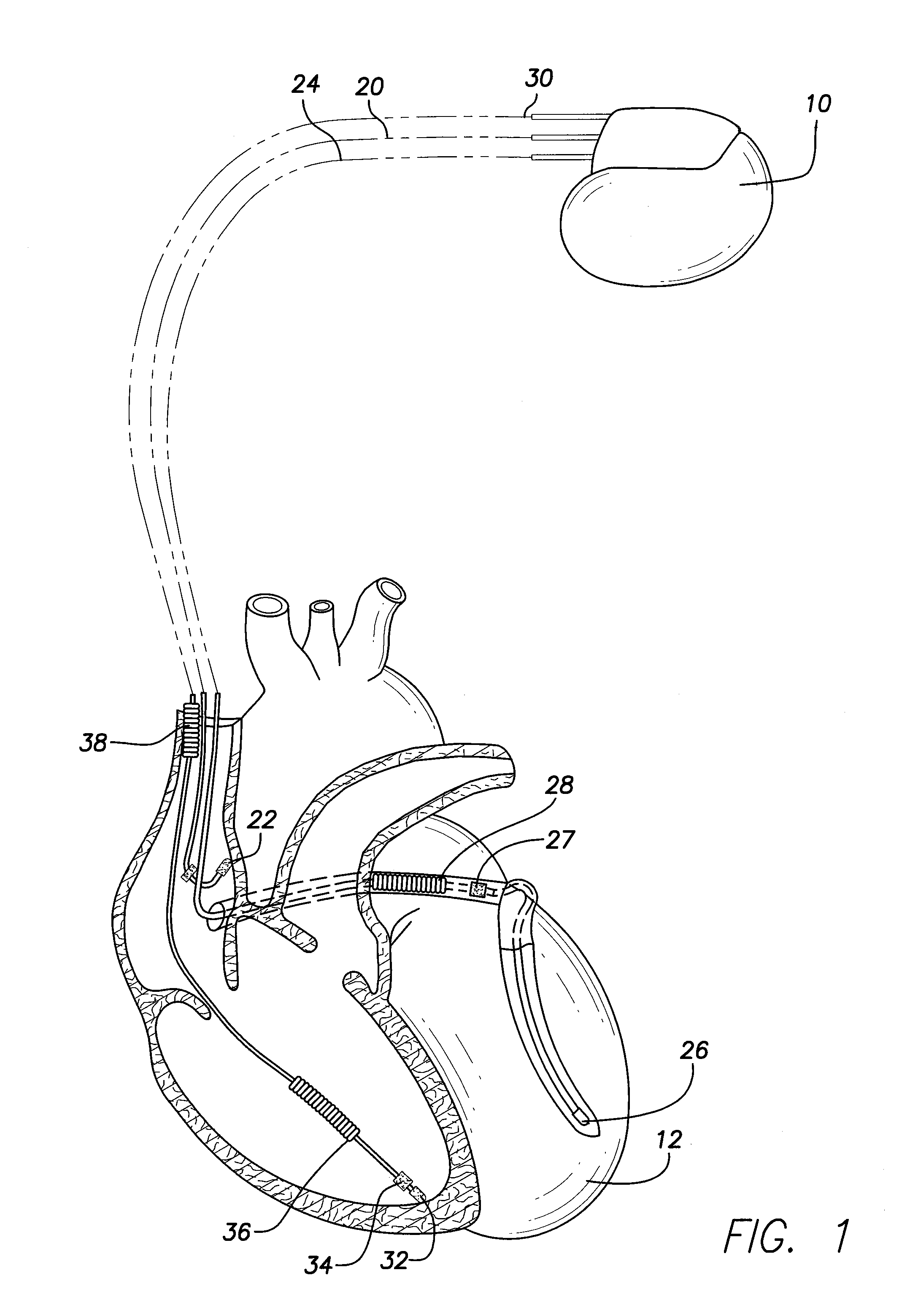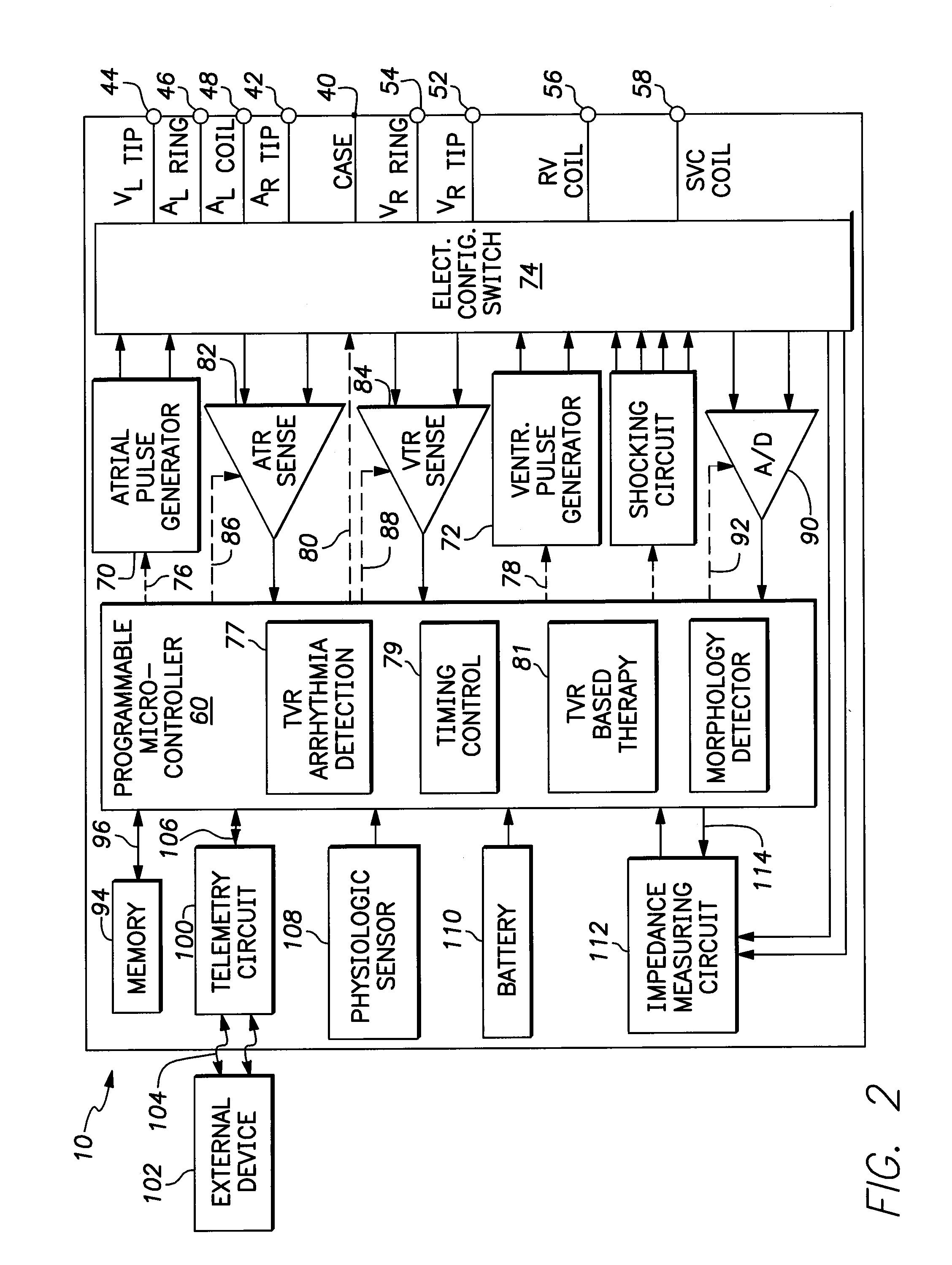Method and system for detecting and treating junctional rhythms
- Summary
- Abstract
- Description
- Claims
- Application Information
AI Technical Summary
Benefits of technology
Problems solved by technology
Method used
Image
Examples
Embodiment Construction
[0028]The following description is of the best mode presently contemplated. This description is not to be taken in a limiting sense but is made merely for the purpose of describing embodiments of the invention. The scope of the invention should be ascertained with reference to the issued claims. In the description that follows, like numerals or reference designators will be used to refer to like parts or elements throughout.
[0029]Throughout the present application, the following abbreviations shall be utilized. The term AS shall mean atrial sensed event also labeled as a “P” Wave when looking at the surface ECG. Functionally AS and P wave are identical and do not represent a specific site of origin. The term AP shall mean atrial paced event. The term ASR shall mean atrial sensed event but occurring during the refractory period such that it does not alter any device timing. The term VS shall mean ventricular sensed event also labeled a “R” wave or “QRS” complex as recorded on a surfa...
PUM
 Login to View More
Login to View More Abstract
Description
Claims
Application Information
 Login to View More
Login to View More - R&D
- Intellectual Property
- Life Sciences
- Materials
- Tech Scout
- Unparalleled Data Quality
- Higher Quality Content
- 60% Fewer Hallucinations
Browse by: Latest US Patents, China's latest patents, Technical Efficacy Thesaurus, Application Domain, Technology Topic, Popular Technical Reports.
© 2025 PatSnap. All rights reserved.Legal|Privacy policy|Modern Slavery Act Transparency Statement|Sitemap|About US| Contact US: help@patsnap.com



